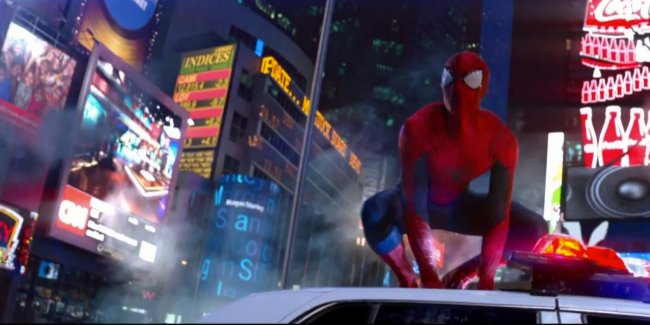My title comes from an interview with Mexican art cinema director Carlos Reygadas. He was upset by the current status of the cinema today, not necessarily the comic book genre. I think he meant that the fast-paced and panel-like films of today are far from the specificity of cinema.
I want to say something different than Reygadas. This post is a further consideration of “difficult” films. My current work is centered around the sensuous experience of art cinema, the difficulties certain films pose in terms of the cinematic excess or lack of narrative motivation. In this entry I want to discuss the feeling of exhaustion comic book films produce.
We think the core of comic book films are their action, their choreography, their special effects – in a sense we could say there is something entropic in these images, a gradual decrease in the spectator’s energy available to devote to the barrage of fast-paced fight scenes. 3D has not made this experience easier. 3D films demand more from our bodies than most 2D film; they require that we engage our entire perceptual field. I have often left in the middle of 3D films – only to eventually return – and by the end of the picture I’m often physically exhausted, or worse. This is a documented fact of contemporary blockbusters.
So there is nausea because of perceptual instability, which I call exhaustion. A different sort of exhaustion would be in the narrative itself. In my recent viewings of comic books films, in the previous decade or so, the spectacle is not the foundation of the feature; rather, a complicated, dense, and intricate plot underpins these features. Our exhaustion comes additionally from our “keeping up with” the action, the characters, the twists and turns as bad guys become good and the good turn evil, as we travel across the globe and sometimes into space.
While the male lead still dominates the superhero genre, the number of characters seems to be increasing, allowing for a much more complicated plot to form, particularly in the features that now stretch over the two-hour mark (Captain America: The Winter Soldier [2013], Man of Steel [2013], The Dark Knight Rises [2012]). The best of the genre limit this feeling of exhaustion by utilizing humor, relishing in a plot twist, or with perceptual breaks (Batman franchise), while the worst commands the opposite (Man of Steel, The Amazing Spider-Man [2012]).
Provided the requirement to sometimes break from my immersion in a film due to nausea, the 3D and special effects themselves therefore exceeding narrative motivation, it seems important to reconsider how to watch comic books films. I would call watching a comic book film a Thinking Through (I deploy these terms from Jenny Chamarette, but in a different way), whereby we must constantly re-situate ourselves in relation to the narrative, its characters, its twists and turns – we cannot get absorbed into this genre because it requires us to actively think about what is occurring (characters, plot, etc.). I oppose any sort of claims about the dumbness or ease in which these blockbusters are watched; instead, it clearly demands a high level of cognitive engagement. Comic book films are thoroughly participatory in this regard.
On the other hand there is a Thinking With films that absorb us. The aim of such films are not to engage our cognitive faculties – keeping up with the intricate plot and multiple characters, for instance – but spark a perceptual (bodily) experience. In such a film the experience is ruined once we begin to think through.
More needs to be said about narrative exhaustion in the contemporary superhero genre. For now it suffices to say that as much as a purely experimental work evokes entropy in its viewers, it would be important to theorize the intricate plots of the blockbuster in similar terms. These are different experiences to be sure, but I’m still rattled by the consistent exhaustion I feel in my recent viewings of Hollywood films (at the cinema). Perhaps I’ve grown accustomed to the slowness of contemporary art cinema or I find intricate plots more irritating than enjoyable.

